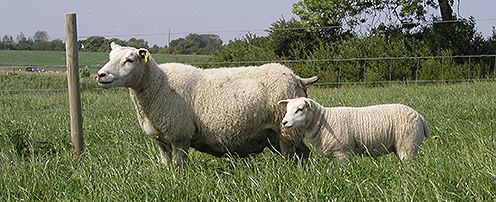Infectious livestock diseases

The Danish Veterinary Consortium carries out important research in the area of serious infectious livestock diseases, including exotic, emerging and zoonotic diseases with the focus on key aspects of diagnosis, surveillance and control of these diseases. Denmark is free from serious infectious livestock diseases, making it important to acquire and maintain knowledge of and experience in all clinical as well as diagnostic aspects relating to these agents. We will obtain this knowledge through studies of agents and the agent/host mechanisms through virulence and pathogenesis studies of the viruses, and by examining the infection dynamics, spread and control options for the diseases.
The vectors' role
There is an increased tendency for new vectors and vector-borne infections to spread to and become permanent in Europe. Through research, we are working to improve our understanding of the vector biology, ecology and taxonomy and their infection potential. Our focus is on establishing risk-based surveillance of vectors and vector-borne diseases.
Our research
The research is basic and applied; it is aimed at supporting the emergency response team and advising government agencies and institutions, and the industry. Within the research-based set-up, which increasingly includes in-depth knowledge of the genetic basis on both the host and the pathogen side, efforts are integrated with the in-silico (bioinformatics), in-vitro (laboratory, cell cultures) and in-vivo (animal models) methods. This approach, combined with advanced molecular methods, makes it possible for the Danish Veterinary Consortium to carry out research at the highest international level and is thus an attractive partner. Research is also characterized by a very extensive and highly interdisciplinary collaboration network with several research institutions at national and international level.
